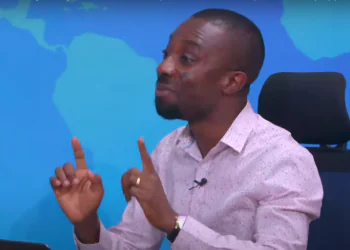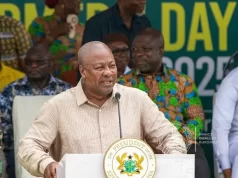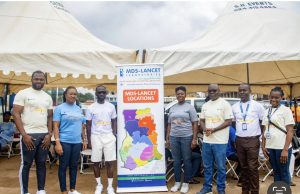New Patriotic Party (NPP) communications member Dennis Miracles Aboagye has launched a scathing critique of Ghana’s current administration, labeling its leadership as “incompetent arrogant braggarts” who “scammed their way into power.”
The remarks, posted on social media, targeted rapid cement price hikes and supply shortages under the four-month-old government.
Aboadgye’s comments came in response to a years-old tweet from Felix Kwakye Ofosu, a spokesperson for the ruling National Democratic Congress (NDC). He cited data showing cement prices rising from 85 cedis in January 2025 to 130 cedis by April a 45 cedi increase in four months. By contrast, he noted, prices climbed by 55 cedis over the NPP’s eight-year tenure, from 30 cedis in 2016 to 85 cedis in early 2025. “To make it worse, there’s the worst-ever shortage in cement supply. You can’t even find it to buy!” he wrote.
The critique underscores escalating tensions between the NPP and NDC, with opposition figures seizing on economic pressures to challenge the government’s legitimacy. Cement, a critical commodity for Ghana’s construction sector, has become a flashpoint, with recent scarcity disrupting housing projects and infrastructure development.
While Aboagye’s claims align with verified market trends, the government has yet to publicly address the cement shortage or price surge. Industry analysts attribute the crisis to multiple factors, including currency depreciation, rising fuel costs, and supply chain disruptions linked to global geopolitical tensions. However, political opponents argue domestic policy missteps have exacerbated the situation.
Ghana’s construction sector, which contributes nearly 15% to GDP, faces heightened vulnerability from material shortages. Similar price volatility occurred in 2022 during the Russia-Ukraine war, when cement hit 80 cedis per bag, prompting calls for stabilization measures. Economists note that while global factors play a role, sustained price controls and strategic reserves proposed under previous administrations remain unimplemented.
The exchange highlights a broader pattern of Ghana’s political discourse, where commodity prices often serve as proxies for assessing governance. With inflation hovering at 23% as of March 2025, public frustration over living costs has intensified, testing the new government’s ability to deliver on economic stability pledges.
Aboadgye’s remarks, though partisan, reflect growing impatience among voters and businesses awaiting concrete interventions. As cement scarcity persists, the pressure mounts for authorities to clarify strategies for mitigating market imbalances or risk further erosion of public trust.
Cement Prices have increased by a whooping 45cedis under 4months of your presidency.
In 8years it increased by 55cedis under the NPP.
Cement Price in 2016 – 30cedis
Cement Price in 2025 January- 85cedis
Cement Price in 2025 April – 130cedisTo make it worst, there’s the… pic.twitter.com/pQQ4Wd3pCh
— Dennis Edward Aboagye (@DennisMiracles) April 19, 2025
Send your news stories to newsghana101@gmail.com
Follow News Ghana on Google News
















